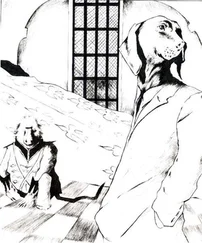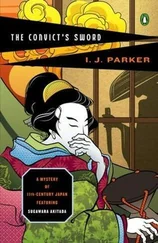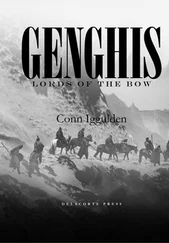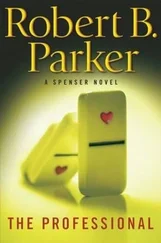K Parker - The Belly of the Bow
Здесь есть возможность читать онлайн «K Parker - The Belly of the Bow» весь текст электронной книги совершенно бесплатно (целиком полную версию без сокращений). В некоторых случаях можно слушать аудио, скачать через торрент в формате fb2 и присутствует краткое содержание. Жанр: Фэнтези, на английском языке. Описание произведения, (предисловие) а так же отзывы посетителей доступны на портале библиотеки ЛибКат.
- Название:The Belly of the Bow
- Автор:
- Жанр:
- Год:неизвестен
- ISBN:нет данных
- Рейтинг книги:5 / 5. Голосов: 1
-
Избранное:Добавить в избранное
- Отзывы:
-
Ваша оценка:
- 100
- 1
- 2
- 3
- 4
- 5
The Belly of the Bow: краткое содержание, описание и аннотация
Предлагаем к чтению аннотацию, описание, краткое содержание или предисловие (зависит от того, что написал сам автор книги «The Belly of the Bow»). Если вы не нашли необходимую информацию о книге — напишите в комментариях, мы постараемся отыскать её.
The Belly of the Bow — читать онлайн бесплатно полную книгу (весь текст) целиком
Ниже представлен текст книги, разбитый по страницам. Система сохранения места последней прочитанной страницы, позволяет с удобством читать онлайн бесплатно книгу «The Belly of the Bow», без необходимости каждый раз заново искать на чём Вы остановились. Поставьте закладку, и сможете в любой момент перейти на страницу, на которой закончили чтение.
Интервал:
Закладка:
Loredan examined the work gravely, like a colonel inspecting his troops. ‘Not bad,’ he said. ‘Now you can do the other one, while I make a start on stripping the bark off.’
‘Oh.’ The boy picked up the axe again, a little less enthusiastically this time, while Loredan walked over to the cart and took the drawknife out of the box. The sky was clouding over. It’d be a good idea to get a move on if they didn’t want to have to finish the job off in the pouring rain. He felt the edge with his thumb; it was sharp enough for sloughing off bark, for which purpose a slightly dull blade is marginally preferable. As he turned to walk back, he heard the sound of the axe pecking the wedge.
‘That’s the ticket,’ he called out. ‘You never know, we might make a bowyer of you yet.’
CHAPTER TWO
It was late afternoon by the time Gorgas Loredan’s ship dropped anchor in Scona Bay, and he decided to put off making his report until the next morning. There was, after all, no hurry; the enemy would still be dead tomorrow, and quite probably the day after as well, and he could see no pressing reason why he should toil all the way up the steep hill to the Director’s office and hang about there for an hour or so until his sister condescended to see him when he could be at home, with his boots off and his feet up on a footstool, watching the sun set over Shastel with a mug of hot spiced wine in his hand.
From the Quay he strolled down the long sweep of the Traders’ Dock, making a mental note of the ships that had arrived since he left and checking them against his comprehensive mental register: two more ore-freighters from Colleon (Why all this activity in the copper trade? Was someone trying to corner the market?); a huge timber-ship from the South Coast with thirty enormous cedar logs stacked pyramid-fashion the whole length of the ship; a handful of light, fast cutters from the Island, three of which he’d never seen before. It was good to see the dock this busy; it suggested confidence.
As usual at this time of day, the Dock was crowded with people taking the pre-dinner stroll around which the life of Scona seemed to revolve. This was the time of day when the shops and stalls did their best business, while merchants gathered under the white awnings of the taverns to put deals together and deplore whatever it was that was threatening them all with penury and ruin that week. Craftsmen and shop owners walked slowly with their families along the curve of the sea-wall at the top end of the Dock, husbands and wives arm in arm, their eyes fixed straight ahead in case they caught sight of someone they didn’t want to have to stop and talk to, while the children ambushed each other from behind the barrels and bales that stood outside the warehouses of the Bank. The deep hum of voices in pleasant conversation that pervaded the place always reminded Gorgas of sleepy bees on a hot day, and put him in mind of the seven hives that used to stand at the top of their home orchard, a perpetual terror to him when he was a boy; perhaps it was that association that always made him uneasy here on the Dock in the early evening. He preferred to take his walk in the Square, and let his children play round the base of the grand fountain, with its three sad-looking bronze lions.
He left the Dock and walked uphill along the Promenade into the Square, passing the vast bulk of the Bank’s new offices on his left. Half the facade was still covered in scaffolding, masking its outline like three hundred years’ growth of ivy, so that he still didn’t really know what the building was going to look like. Given the awesome scale of the thing it was almost self-effacing; a stranger could quite conceivably walk past it and not notice. Partly this was because it had been chipped out of the side of the great rocky outcrop that dominated the town, so that the frontage was just a small panel cut into the side of the hill, like the worked face of a quarry. Mostly, though, it was because they couldn’t be bothered with grandiose columns and porticoes and all the other clutter of which builders were so fond. There was no need to tell the people of Scona that this was an important building. They knew that already.
There is something almost arrogant about the lack of ostentation displayed by the Directors of Scona; a hectoring determination to prove that they have nothing to prove . Gorgas smiled as he savoured the words in his mind; the Dean of Shastel at his supercilious best, in a letter they’d intercepted a month or so back. On balance, he had to admit, he preferred the bewildering and vulgar complexity of Shastel architecture to the slab-sided four-walls-and-a-roof approach his sister had chosen, but he wasn’t sure that he liked himself for liking it. When his sister got going on the subject, as she often did, and started talking about every cornice and archetrave on Shastel being stained with the blood of forced labour, he tended to keep his head down and his mouth shut. As he passed the fountain he converted the smile into a wry grin and went left into Three Lions Street, where he lived.
He had only just turned the corner when a small, incredibly fast object hurtled down the paved street towards him yelling, ‘Daddy! Daddy!’ and collided sharply with his midriff, knocking the wind out of him. He stepped back, put down his kitbag and lifted the object up, so that her eyes were level with his.
‘Hello,’ he said.
‘I banged my head on your belt,’ his daughter said reproachfully, ‘and now it hurts.’
Gorgas solemnly examined the slight red mark on her temple. ‘We’ll have to post you as wounded in action,’ he said. ‘We’ll ask Mummy if you deserve a medal.’
The little girl smiled at him with a mercenary glint in her eyes. ‘Please can I have a medal?’ she said. ‘I’d really like one. You get medals for being brave.’
‘That’s right,’ Gorgas replied, putting her down and taking her hand. ‘And you’re going to be very brave and not cry just because you bumped your head.’
‘All right. Then will I get a medal?’
‘If you eat all your dinner.’
‘Oh.’ The little girl frowned thoughtfully. ‘I don’t think I really want a medal, actually,’ she said. ‘I’m not very hungry.’
‘Oh, really?’ Gorgas made a pantomime of ferocious scowling. ‘You mean you’ve been stuffing yourself with nuts and honeycomb all afternoon, so you haven’t got any room left for proper food. I know you too well, my girl. Now run indoors and tell Mummy I’m home.’
He watched her scuttle into the house, and not for the first time wished he hadn’t agreed to call her Niessa, after her aunt. It had been a bad omen, in his opinion; far better to have named her after her mother, or picked a name that had no connotations at all. I wouldn’t mind her having her aunt’s brains, he told himself, or her strength of will, or even that clarity of thinking that’s so easy to mistake for callousness and cruelty; but that’s about all I’d want for her out of that particular package. Let’s all hope she takes after her mother.
Though comparatively modest for one of his position and means, Gorgas’ house was large by the standards of Scona and reflected the tastes and experiences of its owner. The central courtyard with its surrounding covered cloister was in the approved local style, but whereas nearly all the houses on Scona were entirely inward-looking, offering nothing to the outside view except four dour walls with narrow slits for windows, Gorgas had built a verandah on the side that faced the sea, Island-fashion, where he could sit and look out across the channel to Shastel and the mountain ranges of the mainland. The builders who’d executed his design hadn’t known what to make of it; they’d insisted on calling it the look-out, on the assumption that it must have something to do with his position in the Bank. Presumably they imagined him sitting there with wax tablets and stylus, jotting down details of the ships arriving at the Dock, or brooding over maps and military textbooks as he planned the next phase of the war. Fortunately the verandah was hardly overlooked at all, and so only a few of his neighbours ever got to see the scandalous sight of the Chief Executive sitting idly in a huge cedarwood chair with his wife on a pile of cushions beside him and his offspring playing with wooden bricks at his feet.
Читать дальшеИнтервал:
Закладка:
Похожие книги на «The Belly of the Bow»
Представляем Вашему вниманию похожие книги на «The Belly of the Bow» списком для выбора. Мы отобрали схожую по названию и смыслу литературу в надежде предоставить читателям больше вариантов отыскать новые, интересные, ещё непрочитанные произведения.
Обсуждение, отзывы о книге «The Belly of the Bow» и просто собственные мнения читателей. Оставьте ваши комментарии, напишите, что Вы думаете о произведении, его смысле или главных героях. Укажите что конкретно понравилось, а что нет, и почему Вы так считаете.












